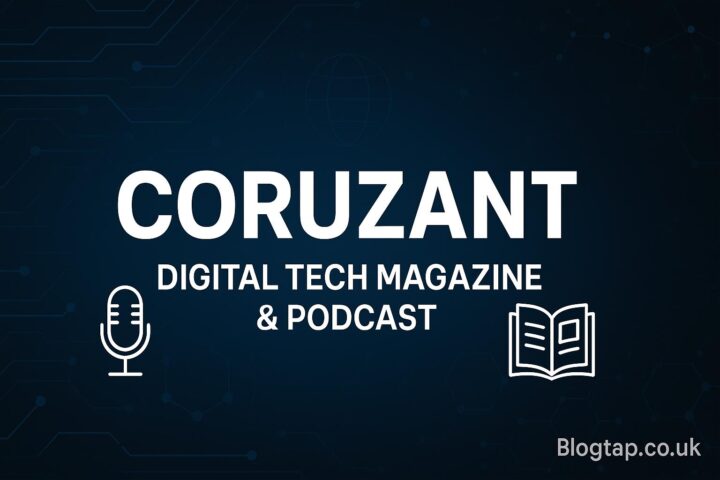The internet has become an indispensable part of our daily lives, offering a plethora of platforms for communication, data storage, and resource sharing. However, with this convenience comes the lurking threat of data breaches. One of the latest incidents making waves is the thejavasea.me leaks Aio-tlp, a cybersecurity breach that has raised significant concerns about data privacy and platform accountability.
What is thejavasea.me?
thejavasea.me is an online platform known for hosting various resources and providing data-sharing services. While it has garnered users for its functionality, the platform recently made headlines due to a major security lapse involving the Aio-tlp file. This leak has exposed sensitive user and business data, casting doubt on the platform’s ability to protect information effectively.

Why Was the Aio-tlp Leak Significant?
The leaked Aio-tlp file reportedly contains highly confidential details, including usernames, passwords, financial records, and potentially proprietary business information. This breach is a stark reminder of the vulnerabilities within online platforms and highlights the need for stringent data protection protocols.
How Did the Aio-tlp Leak Happen?
Preliminary investigations suggest that the breach occurred due to insufficient cybersecurity measures on the platform. Potential causes include:
- Weak or outdated encryption methods.
- Failure to conduct regular security audits.
- Vulnerabilities in the platform’s infrastructure exploited by malicious actors.
- Speculation of insider involvement, although this remains unverified.
This incident underscores the importance of proactive cybersecurity measures, such as implementing multi-factor authentication, conducting penetration testing, and educating employees about potential risks.
What Data Was Exposed?
The leak of the Aio-tlp file has reportedly compromised:
- User Account Details:
- Usernames and passwords.
- Email addresses.
- Financial Information:
- Credit card details.
- Transaction histories.
- Business Data:
- Proprietary files and communications.
- Trade secrets and sensitive operational data.
This wide range of exposed information amplifies the risks of identity theft, fraud, and competitive exploitation.
Who is Affected by the Leak?
The Aio-tlp leak has far-reaching consequences for:
- Individual Users:
- Potential risks of identity theft and financial fraud.
- Businesses:
- Damage to reputation and operational disruptions.
- Loss of proprietary or confidential data.
- Third Parties:
- Vendors or partners associated with the platform may also face repercussions.
By understanding the affected parties, we can better appreciate the gravity of this cybersecurity lapse.

Implications for Data Privacy
This breach has significant implications for data privacy. It erodes trust in online platforms and highlights the importance of strong data protection measures. Some of the key takeaways include:
- Increased Risk for Users:
- Users must remain vigilant about their online security practices.
- Monitoring bank accounts and using unique passwords are now essential.
- Accountability for Platforms:
- Platforms like thejavasea.me must implement stricter security protocols.
- Regular audits and adherence to privacy laws such as GDPR are crucial.
- Broader Lessons for the Industry:
- The need for advanced encryption technologies.
- Adoption of decentralized data storage systems.
Legal Repercussions
Under regulations like the General Data Protection Regulation (GDPR), companies are required to safeguard user data and notify affected parties promptly in case of breaches. If thejavasea.me is found negligent, it could face:
- Heavy fines.
- Compensation claims from affected users.
- Mandates to enhance their security infrastructure.
These legal consequences serve as a reminder of the importance of compliance with data protection laws.
Steps to Protect Yourself from Data Breaches
While users have limited control over a platform’s security measures, there are steps you can take to safeguard your information:
- Use Strong Passwords:
- Avoid using the same password across multiple platforms.
- Consider using a password manager to generate and store secure passwords.
- Enable Two-Factor Authentication (2FA):
- Adds an extra layer of security to your accounts.
- Monitor Financial Activity:
- Regularly check bank and credit card statements for unauthorized transactions.
- Be Cautious Online:
- Avoid sharing sensitive information on untrusted platforms.
- Verify the security credentials of websites before uploading data.
- Use Identity Protection Services:
- These services can alert you to potential misuse of your personal information.
Lessons for Organizations
Organizations must take this breach as a wake-up call to prioritize data security. Key strategies include:
- Implementing advanced encryption standards.
- Conducting regular vulnerability assessments.
- Training employees to recognize and prevent cybersecurity threats.
- Establishing a culture of accountability and compliance.
Frequently Asked Questions (FAQs)
What is the Aio-tlp file?
The Aio-tlp file is a collection of sensitive data hosted on thejavasea.me, containing user credentials, financial records, and business documents.
How did the breach occur?
The breach likely resulted from insufficient security measures, such as outdated encryption and a lack of regular security audits.
Can I take legal action if my data is compromised?
Yes, under data protection laws like GDPR, affected users can pursue legal action against platforms found negligent in protecting their data.
How can I check if my data was part of the breach?
You can use services like Have I Been Pwned to determine if your information has been compromised.
What should I do if my data was leaked?
- Change your passwords immediately.
- Monitor your financial accounts for unauthorized activity.
- Consider freezing your credit to prevent identity theft.
Conclusion
The thejavasea.me leaks Aio-tlp incident serves as a critical reminder of the importance of cybersecurity in the digital age. For individuals, it emphasizes the need for vigilance and personal responsibility when navigating online platforms. For organizations, it highlights the dire consequences of neglecting data protection measures.
As the digital landscape continues to evolve, staying informed and proactive is our best defense against cyber threats. By learning from incidents like this, we can collectively foster a safer and more secure online environment.
Stay connected for the latest news and updates on, Blog Tap












